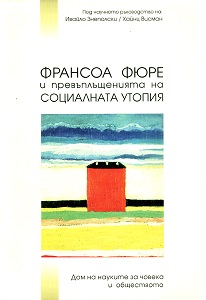
We kindly inform you that, as long as the subject affiliation of our 300.000+ articles is in progress, you might get unsufficient or no results on your third level or second level search. In this case, please broaden your search criteria.






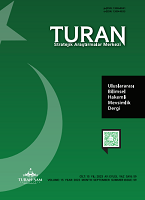
Turkish state philosophy is a philosophy that aims to create a state structure first and then to create the theoretical structure of this state. In this sense, it is clear that Turkish state philosophy is different from Western political philosophies. On the basis of this state philosophy, two concepts have a very important place. These concepts are the concepts of "custom" and "kut". These concepts come to the fore with their functions that regulate the structure and functioning of the state. However, it is known that Turkish state philosophy also uses some ideals and symbols. These ideals and symbols were seen and used as both an end and a tool for this state philosophy. Turkish State philosophy consists of two different historical processes in these contexts. While the first of these is the pre-Islamic Turkish state understanding, the second can be listed as the post-Islamic Turkish state understanding. The pre-Islamic Turkish understanding of state is shaped by the understanding of sovereignty, the concept of custom and the legal order identified with it. The post-Islamic understanding of the Turkish state, on the other hand, consists of the combination of the basic characteristics of the Islamic faith and Turkish customs. In this sense, it can be stated that the Turkish state understanding of this period is based on a political understanding based on the synthesis of Islamic civilization and Turkish civilization.
More...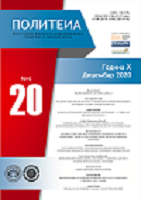
In this paper, we discuss the meaning of the words ‘republic’ and ‘republicanism’. These words are classic political terms, frequently used in political theory and political practice as well. Still, do they convey clear and unambiguous meaning to everybody? Is it possible to find a single sense and meaning of the word republic/republicanism? Is something like that even necessary? How to understand and justify the intense contemporary scientific discussion on that topic? In general, it is possible to use three types of classification. First, we can analyze different theories of republicanism, such as the ones we have in the works of Machiavelli, Kant, and alike. Secondly, it is possible to analyze the different historical forms of the notion of republic - for example, Roman Republic, Republic of Venice, or the United States. Thirdly, we can analyze different doctrines of republicanism, such as the so-called liberal republicanism or civic republicanism. In this text we will go through these forms of republic and republicanism using the Kantian formula of ‘government’ and ‘sovereignty’.
More...
Thomas Hobbes and Jean-Jacques Rousseau are among the most important modern political philosophers, who base their theories on the idea of social contract. Both authors start from the natural equality of all people and the uncertainty of the natural state, but at first glance they end up with completely different perspectives on sovereignty and relations within a political society. Rousseau insists on the common sovereignty of all citizens, who have a guaranteed economic minimum and the inalienable authority to enact laws and care for the general will, by which they all together simultaneously constitute those who are governed. Hobbes, on the other hand, dictates that the people elect a sovereign who is always in their natural state and must have great power in order to fulfil their role as protector. Yet, the paper argues that their positions are not really that different, bearing in mind Rousseau’s executive power and wise legislators, and Hobbes’ strong rights of subjects. The thesis of the paper is that in both of them the people authorize and supervise, and someone else rules.
More...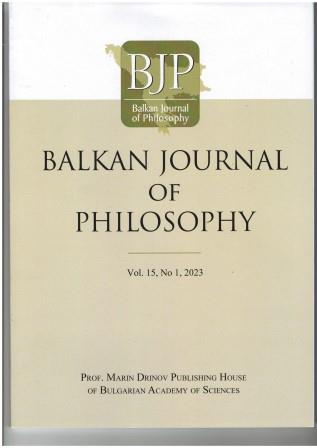
The relevance and theoretical weight of the mentioned topic of research consists in the definition of the phenomenon metamodernism, which, in modern humanitarian knowledge and in literary and artistic practice, determines the need to distinguish and analyse segments of European humanism as means of in-depth reproduction, nuance and personalisation of historical and cultural stages, in the context of the specified systematisation of the movement of segments from the middle of the 19th to the first two decades of the 21st century. The main goal of this study, considering the creative and research potential of segments that contributed to the gradual layering of specific features of European humanism, is the reconstruction of arguments for and against those processes that caused the development of a single cultural space. The basis of the methodological approach in this study is the principles of historicism with the assignment of analytical, comparative, and chronological approaches to the determination of a wide range of issues that are of significant importance in the context of the stated topic. In the course of carrying out this research, results were obtained that have significant theoretical and practical significance, because they contribute to the further scientific and theoretical understanding of the dynamics of the European humanistic movement from the second half of the 19th to the first two decades of the 21st century, and can be used in lectures on aesthetics, philosophy, cultural studies, history and the theory of art for students of humanitarian and artistic creative universities. The results obtained during the implementation of this research, and the conclusions formulated on their basis, are of significant importance in the context of determining the key trends in the recognition of the creative and searching tendencies of European humanism, which play an important role in the process of forming a single cultural space.
More...
Research on the meanings of self and others’ perceptions, beliefs, values, and attitudes in intracultural and intercultural relations is of significant social relevance. A micro-analysis of its development as a whole process differentiated by the single substrates from an endophilosophical and ontological viewpoint will allow the implementation of a new definition of the self, being, and other according to the principles of dynamics and interculturality. This new sense of defining being will not only produce a good conception of the impact of culture on identity but also depict how the opposite, or pathogenic identity, should be considered, especially in times of existential crisis and change. Healthy or pathogenic patterns themselves organize situations where the basic needs of interaction with space are constructed and the equilibrium of everyone is maintained. Therefore, depending on the received information, professionals can formulate an objective analysis of the conscious self.
More...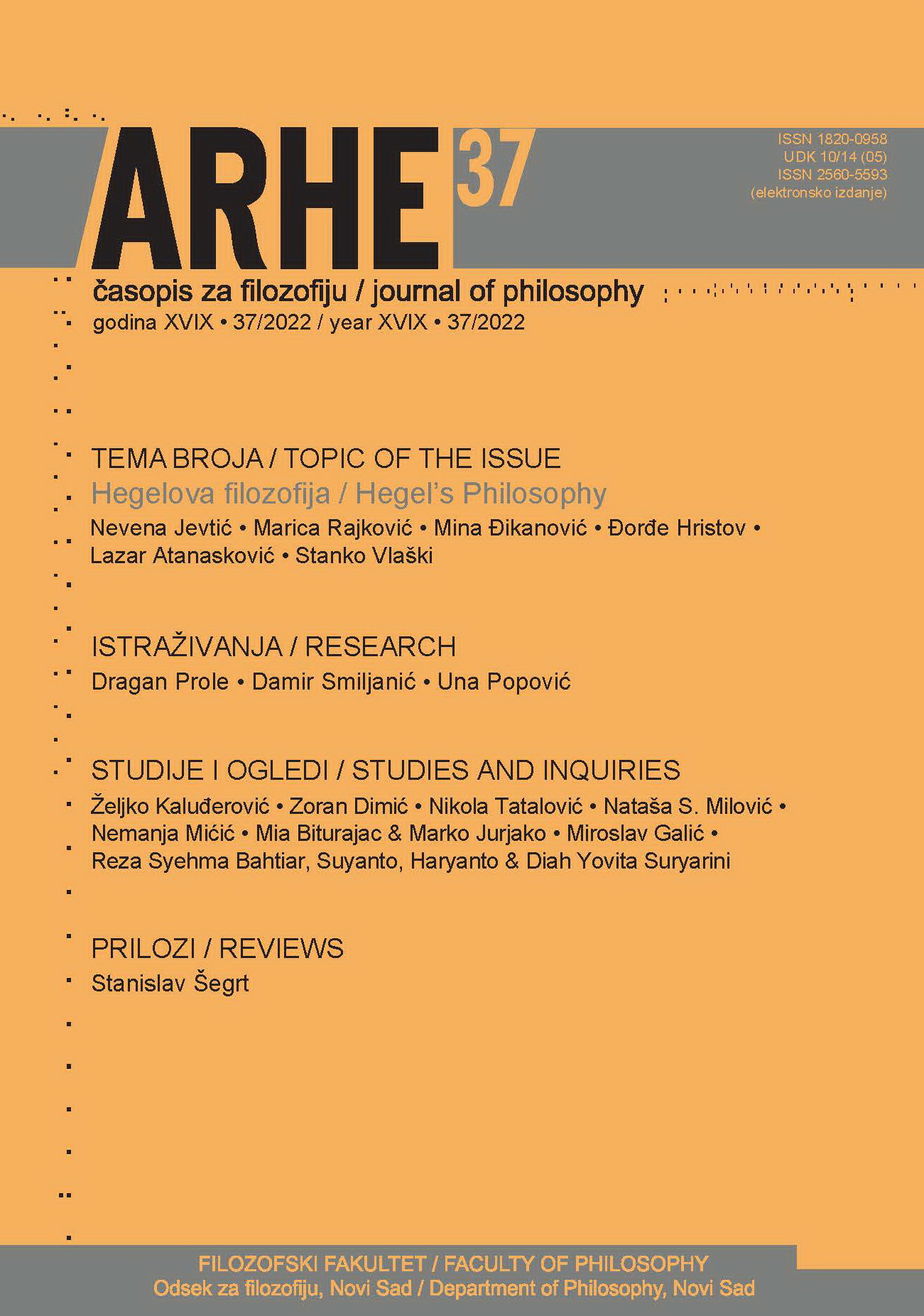
In the article, I show that Hegel’s understanding of war as a condition of state sovereignty contains several contradictions that make modern wars unviable for the sustainment of political unity. In the first place, I offer an explanation of Hegel’s conception of war as a necessity of politics, with attention to his concept of “courage”, which figures for Hegel as an alternative to the social contract theory. In the next step, I argue that this conception of courage cannot fulfil all of the requirements in Hegel’s political philosophy that would offer a guarantee of state sovereignty. I do this through a typology of wars contained in Hegel’s work — colonial, limited, and total war — demonstrating that none of these wars are capable of securing political unity in modernity. Finally, I conclude that modern wars have a sense only within Hegel’s world-history, but not in his political philosophy.
More...
In the political life of modern Turkey, both in the 20th and at the beginning of the 21st century, the issue of creating and then changing the new state administration was on the agenda; in the scientific literature it was called the doctrine of "Kemalism" and "Erdoganism". At the beginning of the 20th century, the founder of the Republic of Turkey, Mustafa Kemal Atatürk (1881-1938) directed the state development of the country towards the West and proclaimed the path of Europeanization as the main principle of the country's unchanging domestic and foreign policy. The events taking place in Turkey in the first decade of the 21st century showed us that President Recep Tayyip Erdogan began to build a new state ideology in the country, which was sharply different from the Ataturk’s “Kemalist” state administration. The question arises how long the Republic of Turkey will continue to move with democratic and European values and keep the form of government - "Kemalism", if the country passes to the state administration of "Erdoganism". What is the main doctrine of "Kemalism" and "Erdoganism"? Kemalism (Turkish: Kemalizm), also known as "Ataturkism" (Turkish: Atatürkçülük, Atatürkçü çı-zmi), is based on the principle of six arrows (Turkish: Altı Ok) and is a core part of the ideology of the Turkish Republic. Mustafa Kemal Atatürk carried out the reform of "Kemalism". This meant the Westernization of political, cultural, social and religious institutions, including the establishment of democracy, civil and political equality of women (it should be noted that thanks to the reform, women were given the right to participate in elections), the struggle for the separation of religion from school, the development of science, support free education, etc. "Kemalism" is the name of the ideological and philosophical trend, on the basis of which the Turkish national state was created on the site of the multinational Ottoman Empire and which later, after the death of its founder Mustafa Kemal Atatürk, was declared the official state ideology. The idea of establishing "Kemalism" was laid down during the existence of the Ottoman Empire, in order to avoid the inevitable overthrow. In the early 20th century, the young Ottomans attempted to establish an ideology of Ottoman nationalism or "Ottomanism" to suppress the development of ethnic nationalism and limit the influence of Islam on democracy. "Kemalism" is a new, modernized philosophy that has contributed most to the creation of the Republic of Turkey and its subsequent development. The ideology has 6 main principles: 1. Republicanism; 2. laicism; 3. Nationalism; 4. Nationality; 5. Statism and 6. Revolutionism. Along with "Kemalism", a new doctrine called "Erdoganism" has been established in modern Turkey. "Erdoganism" or "Taipism" (Turkish: Erdoğancılık or Tayyipçilik) refers to the political ideals and agenda of Turkish President and former Prime Minister Recep Tayyip Erdogan. "Erdoganism" has been described as "the most powerful phenomenon in Turkey since Kemalism", with widespread support throughout the country. Its ideological roots originate in Turkish conservatism, and its political followers are the ruling Justice and Development Party (AKP), which Erdogan himself founded in 2001. The term "Erdoganism" first appeared after Erdogan's victory in the general elections in 2011 and gained more recognition on the world stage due to active foreign policy ideals based on neoOttomanism. The core ideals of "Erdoganism" include a religiously inspired strong centralized leadership based largely on the consent of the electorate and to a lesser extent on power-sharing and institutional checks and balances. Erdoganism has also been strongly influenced by the desire to create a “New Turkey”, which rejects the founding “Kemalist” principles of the Republic of Turkey and abolishes key constitutional ideals that contradict Erdoğan’s vision of secularism. Supporters of "Erdoganism" often demand a revival of the cultural and traditional values of the Ottoman Empire and criticize the pro-Western social reforms and modernization initiated against the founder of the Republic of Turkey, Mustafa Kemal Atatürk. The main pillar of "Erdoganism" originates in the formation of a personality cult around him, which was actively expressed during the Turkish presidential elections in the form of slogans such as "Man of the Nation" (Turkish "Milletin Adam"). The US news agency “Foreign Policy” described "Erdoganism" as an ideology based on a personality cult around Erdoğan and called it a form of populist authoritarianism. "Foreign Policy" also describes Ottomanism (the glorification of the Ottoman Empire), Islamism, suspicion of Western political intervention in the Middle East, rejection of Kemalism, and restrictions on the democratic process and elections as key attributes of "Erdoganism". When comparing "Kemalism" and "Erdoganism", it was revealed that these two political doctrines have both similarities and significant differences. There are similarities between them in terms of authoritarianism, the neopatrimonial system and populism, as well as in the issue of nationalist rhetoric. The fundamental differences between them are expressed mainly in the replacement of secularism by Islamism, which is characteristic of Kemalism. At the same time, the principle of Westernization of "Kemalism" was replaced by the policy of separating "Erdoganism" from the West and opposing it, which had a significant impact on the formation of a new political course for the country.
More...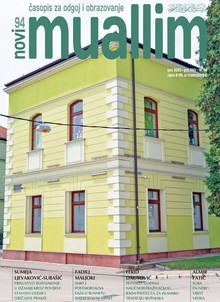
In this article, we compare the three largest ideologies: nationalism (conservatism), communitarianism, and liberalism. We will first analyse all the three ideologies in order to compare them later. The aim of the work is to determine the models of interaction of these ideologies. Justification for carrying out this research lies in the fact that it is ideologies that determine political processes in general. These three ideologies were the cause of the largest-scale conflicts in human history. It is ideologies that determined the block divisions of the world. It is important to point out that modern ideologies emerged after the Theocentrism of the medieval age and essentially represent an attempt to substitute the Absolute as the central category. Modern social and political history is marked by tremulous interactions of conservativism, communitarianism, and liberalism. These ideologies in themselves are complex phenomena and tend to assume different forms. The link between these different ideologies is their common originthe Enlightenment. By the end of the 19th century, the idea of nationalism appeared as a progressive concept. Nationalists were considered socio-political Avangard. Just about thirty years later, socialism emerged as a progressive idea, and socialists, consequently, were perceived as progressive. Globalization is the progressive idea of the present day and nationalism is today something that is passe. The three largest ideologies: communitarianism, conservatism, and liberalism, as a matter of fact, produce one another. This research is intra-disciplinary and sociological in character wherein we used a number of methods typical for social study, but primarily analytical methods: analysis, abstraction, specialization, and synthetic methods (synthesis, specialization, and generalization) were used. Ideologies have shaped the social processes in the past five hundred years thus the research in this field has significant social value. Thus a better understanding of ideologies will help in a better understanding of social processes.
More...
I wonder what I think of the phrase “Bosnian Spirit.” I admit that I seldom think of this phrase in itself, but then from another point of view it is even more self-defeating to believe that I will not be able to deal with it in any way, especially not reflectively, in the foreseeable future. Not for two reasons at least. The first is ignorance. I do not know what the concept of spirit is if you add to it the adjective “Bosnian.” The content is thereby enriched but the scope of the meaning of the universal (the scope of the general concept of spirit) is reduced. The second lies in the fact that I do not understand with any certainty this generously formulated phrase (and, I believe, metaphorically rich one) if I approach it using any method accessible to me. How then am I to take it into consideration? Even if I do not know and even if there is nothing to grasp with such a broad term, this does not give me the right, particularly in a logical sense, to deny the reality of that which I do not either directly know or fully comprehend.
More...
Pitam se, što mislim o sintagmi BOSANSKI DUH? Moram priznati da o toj sintagmi nikada nisam mislio, ali je sa nekog drugog stanovišta još poraznije i to što vjerujem da se neću njome moći ni na koji način, a naročito ne mislilački, niti u doglednoj budućnosti baviti. Ne, barem iz dva razloga. Prvi je neznanje. Ne znam šta je pojam duh ako mu se doda pridjev bosanski, premda je sadržaj obogaćen, a opseg univerzalije, ili opseg općeg pojma duh, umanjen. Drugi je razlog činjenica da tako slobodno sročenu, vjerujem, metaforički bogatu izreku, ni na koji od meni poznatih pristupa ne razumijem određeno, pa je nisam ni kadar uzeti u razmatranje. Zbog toga što ne znam, pa u toj praznini nemam šta niti razumijevati, to mi najmanje daje za pravo, posebno u logičkom smislu, da poričem realnost onoga što ne znam, ili ne razumijem.
More...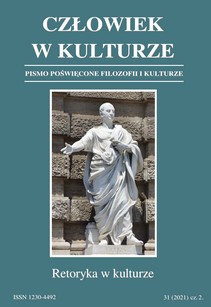
The author of this article argues that the last few generations in American universities have been subjected to a not-so-silent form of cultural Marxism. This practice was in line with Antonio Gramsci's early twentieth century call to undertake a "long march through institutions." Rather than encouraging outright, violent revolution (á la the Bolshevik uprising of 1917), he proposed a gradual takeover of political, cultural, and economic institutions. The university, because of its power to educate and influence future professionals, is a key tool for this transformation of society, a transformation that first seeks to change the civil society, customs, traditions, and habits of people who are historically unregulated by government. This generally sets the pattern by which much of the education in the classroom follows. First, the professor encourages students to doubt the values they have received from their parents and the rest of civil society, and second, the professor deconstructs Western Civilization. The author shows what role propaganda plays in these actions.
More...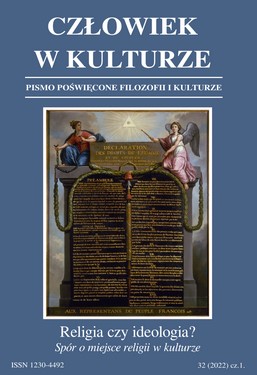
Przed wiekiem [XIX w.] zaczęła się w Europie wielka dyskusja dokoła nazwy czegoś, co jakoby wtedy dopiero zostało odkryte, a nawet jakoby wtedy dopiero w ogóle powstało: dokoła problemu narodu. Tymczasem istota narodu była stara jak świat, bez względu na to, jaką miała nazwę – i nie można o niej nawet tego powiedzieć, iż dopiero w XIX w. została odkryta. Prawdą jest tylko, że wiek ten dopiero wysunął na pierwsze miejsce problemy społeczno-polityczne, a wraz z nimi problem narodu.
More...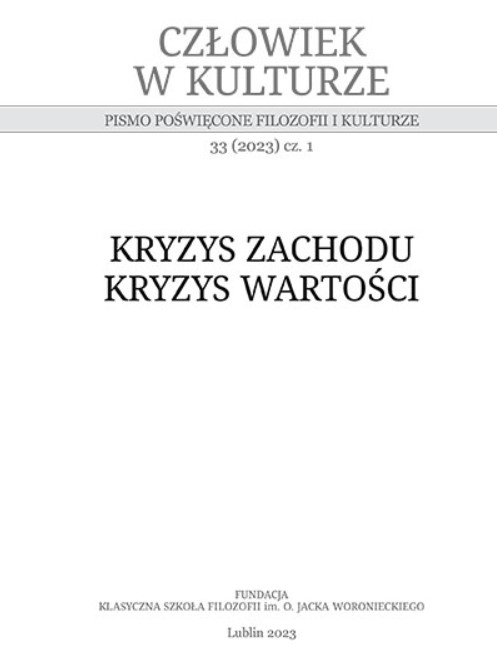
Cardinal Joseph Ratzinger noticed that in contemporary philosophical, social and political thought, as well as culture and science, there had been a final separation between religious and rational categories. This separation has caused mutual dangers, such as religious fanatism, the pathology of reason, extreme liberalism and moral subjectivism. Paradoxically, this separation of religious and scientific ideas has widened the space of dialogue between believers and atheists, between the men of church and the men of science. Ratzinger is certain that the relations between religion and rationalism are necessary to maintain the lasting and universal moral laws, preserving the unconditional respect for every human being. Their correlation presents christianity as the universal religion of the enlighted reason, disseminating the idea of liberty, free from political influences.
More...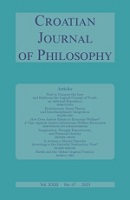
Cosmopolitans including Charles Beitz, David Richards, Brian Barry, Thomas Pogge and Gillian Brock propose the device of an original global position to work out global principles of justice. However, John Rawls does not agree with this kind of proposal. In this paper, I add two key original contributions, which go beyond previous arguments by cosmopolitans and advance the current debates. First, to argue against Rawls’s objection to the global original position, I demonstrate the importance of the distinction between accepting a particular substantive principle and accepting the original position procedure. Second, in order to respond to cultural pluralism, I take a unique approach to show that the idea of the person as free and equal is a fundamental part of the global public culture by examining the most fundamental legal documents: the proto-constitutional documents in international law and the constitutions of the major states. I apply Samuel Huntington’s classifi - cation of civilisations to identify the major civilisations and their core states and show that the idea of the person as free and equal is implicit in the constitutions of most infl uential countries even these countries are categorised in different civilisations.
More...